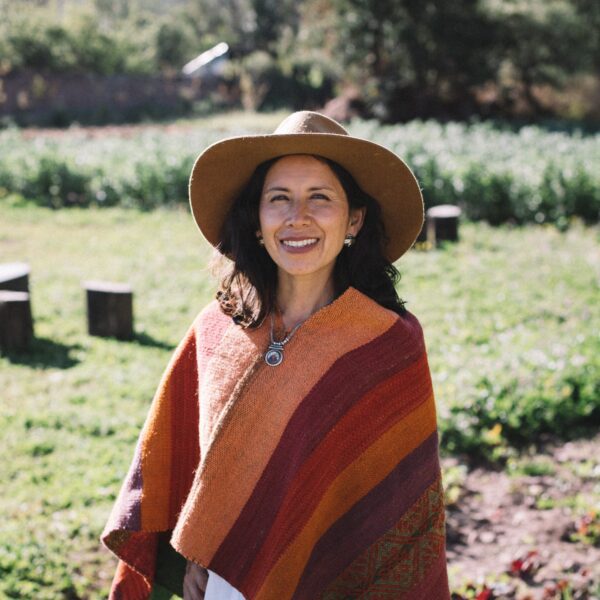This cultural immersion experience at Lake Titicaca is completely led by local residents. It allows us to listen to local stories, understand the totorales (reed like plants) ecosystem, ride in reed kayaks, taste the local food, and discover the handicrafts made from totora. All of this is made possible thanks to the dedication and ancestral knowledge of the Chimu people.
At 8.30 am, we will depart from Puno (pick up at your hotel) to go and meet the Chimu people. You will take a boat to the Chimu floating islands and you will be given information about the origin of the islands and the organization of a local enterprise. The people will demonstrate to us how a totora island is built. You will also be able to participate in a workshop of totorales handicrafts.
After that, you can either choose to go on a kayak ride or to enjoy your free time taking pictures. We will then take you on a large reed raft and talk to you about the ecosystem of the totorales, the different endemic fish and bird species of the lake, and the importance of the Titicaca frog.
At the end of this visit, we will return back to Puno, where we will arrive around 1 pm and drop you off at your hotel. Optionally, you can decide to have lunch on the beach as well.
Photo credits: Giulianna Camarena Montenegro / PNUD Perú / Qhapaq Ñan
This tour to the Chimu floating islands takes only about 4 to 5 hours, so it gives you a brief insight into the life on Lake Titicaca. If you want to get to know this place and its people better, consider going on one of our Multi-Day-Tours at Lake Titicaca.

The Chimu floating islands are a group of three new totora reed islands, located in a clear sector of Lake Titicaca. The Chimu hosts are heirs to a way of life that has adapted to live wisely and harmoniously in Lake Titicaca. In fact, the Chimu Islands Association of Community Tourism Entrepreneurs is working in tourism for the first time. It practices principles of conservation of endemic species, offers quality services and complies with biosecurity protocols. The local people have acquired lots of knowledge working with the Association and are ready to welcome you and pass it on to you, as you discover their home.
This tour to the Chimu floating islands is physically not very demanding. However, please note that lake Titicaca lays at 3.800 meters (12.500 feet) above sea level, which means that one might experience altitude sickness. To prevent that, make sure you stay hydrated and you should not have any problems. Drink up to three litres per day; soup, water and (coca) tea are always good. We also highly recommend wearing a hat or cap, as the sun can be very strong at such altitudes. Should you not feel good despite your precautions, talk to your guide or host family and they will be happy to help out.
No, they don’t. So far, however, most of our travelers do not opt for an optional translator, since apart from the additional cost that might change the experience. Our host families are very used to having guests that don’t speak Spanish. Also, their Spanish is easy to understand for those who speak other Latin languages.
Of course, learning Spanish beforehand is always a good idea! Use an app like Duolingo to learn the basics before leaving and enhance your experience whilst traveling.
On Lake Titicaca it gets very hot during the day and as soon as the sun sets, temperatures drop quite a lot. So be prepared for the sun (hat, suncream, drink lots of water), but also pack some warm clothes for the night.
For questions about booking a tour, prices, preparation for your trip, health and safety or other themes, please check our Frequently Asked Questions page. If you can’t find your question & answer, email us and we’ll add it!

My name is Eliana Pauca and I was born in Arequipa. I have been in tourism since I was 15 years old and I have worked as a tour guide in French, English, German and Spanish. About my studies: I studied Historical-Archaeological Sciences at the Santa Maria Catholic University of Arequipa and later I did a Master’s Degree in Public Policy for International Development at Duke University in North Carolina, USA.
I have lived and worked in the city of Puno on the shores of Lake Titicaca for 16 years. Currently, I live in Barcelona and continue working to develop sustainable tourism in Peru. Every year I return to my country with the aim of developing and supporting unique, sustainable and environmentally conscious tourist experiences. My special interest is the identification of economic opportunities for rural communities. It is my purpose to use tourism as a tool for social, cultural and economic development in Peru and to promote the dissemination of our culture and ancestral knowledge for the benefit of the visitor and the local people.
I am committed to sustainable and responsible tourism because, well done, the tourism industry is a powerful development tool. With responsible tourism we manage to make the visitor enjoy a transformative experience and the local population to reinforce their self-esteem and value their cultural identity while receiving economic income that allows them to improve the education and health of their children.